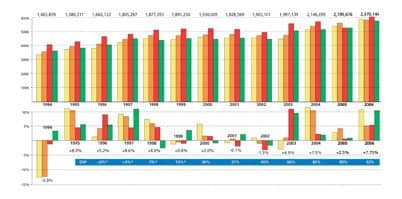April 21, 2008
MED-EL Corporation has announced the U.S. Food and Drug Administration (FDA) approval of the new OPUS 2 cochlear implant speech processor. The OPUS 2 is reportedly the first speech processor that is designed for switch-free operation, with special features for bilaterally implanted listeners.
The device is operated entirely by a remote control unit, the FineTuner, engineered to enable changes to settings without removing the processor from the ear. The FineTuner is designed to communicate with two speech processors, reaching new heights in ease of use for people who use cochlear implants in both ears. An integrated telecoil and a universal direct input for wireless FM and Bluetooth connection (using third-party FM and Bluetooth equipment) ensure easy and comfortable interaction with the surrounding world. An optional private alert indicates program changes and battery status to the user.
Sophisticated Technologies
The OPUS 2 also features the latest high-performance microchip technology, developed to offer greater sound detail and clarity with MED-EL’s proprietary Fine Structure Processing (FSP) sound coding strategy. “Fine structure” refers to the detailed pitch and timing cues that are particularly important when listening to music or having conversations in noisy environments. A MED-EL source states that fine structure cues have not been deliberately included in cochlear implant coding strategies until now. A High Definition Continuous Interleaved Sampling (HD-CIS) coding strategy is also offered.
“The OPUS 2 represents a significant technological development,” says Kim Jackson, vice president of clinical and sales for North America. “It is the smallest speech processor available for any cochlear implant system, and offers listeners state of the art sound processing technology.”
Size, Weight and Comfort Matter
MED-EL reports the new device has a weight of only 10.1g (incl. the new DaCapo ear-level rechargeable battery) and a thickness of 7.0 – 8.7 mm, making the OPUS 2. With a modular system of interchangeable wearing options, the OPUS 2 is designed to be customized to meet individual needs, including special solutions for toddlers and practical options for active teens and the elderly. The processor is available in 6 colors.
Energy-efficient technology ensures a battery life typically 3 to 5 days of use on a single set of disposable batteries, the company says. An LED indicator signals error conditions and provides troubleshooting support, which is especially useful for parents and teachers working with young children with implants.
MED-EL reports the FSP strategy is approved for use by cochlear implant users with at least 6 months experience with the Continuous Interleaved Sampling (CIS+) or HD-CIS programming options, and who have the cognitive ability to express a choice in coding strategy preference. The safety and effectiveness of FSP have not yet been established in pre-lingually deaf children and it is not indicated for use in that population.
The latest member of the MED-EL MAESTROTM cochlear implant system
The OPUS 2 speech processor completes the MAESTROTM cochlear implant system. MAESTROTM is comprised of 4 compatible components of cochlear implants (SONATATI100, PULSARCI100) and speech processors (OPUS 1, OPUS 2), which MED-EL reports is intended to provide surgeons and candidates the option of selecting the best possible solution for each individual case. The combined technical features provide opportunities for both the highest wearing comfort and the best possible hearing experience.
Source: MED-EL




